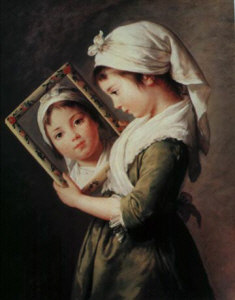Workshops
 We went over essays/stories the other night in the class I'm taking at Penn. Last week, we all had to turn in drafts of our work, even if we're not being reviewed for several weeks. This is odd to me. Usually, you turn your piece in the week before it will be workshopped. That way, you can continue working on it up until the last minute. So, for the next four weeks, I am not supposed to make any changes to my story. Of course, I could anyway, but then that means that the class critique might not be relevant by the time we get around to doing it. An older woman in the class unintentionally said the funniest thing. We were going over her piece and talking about comments and she said, Oh, did I need to write comments for my own piece? Sure, yes. "The writing here is hard to follow and I didn't know what was going on."
We went over essays/stories the other night in the class I'm taking at Penn. Last week, we all had to turn in drafts of our work, even if we're not being reviewed for several weeks. This is odd to me. Usually, you turn your piece in the week before it will be workshopped. That way, you can continue working on it up until the last minute. So, for the next four weeks, I am not supposed to make any changes to my story. Of course, I could anyway, but then that means that the class critique might not be relevant by the time we get around to doing it. An older woman in the class unintentionally said the funniest thing. We were going over her piece and talking about comments and she said, Oh, did I need to write comments for my own piece? Sure, yes. "The writing here is hard to follow and I didn't know what was going on."We also did something I've never done in a grad class before--we had a training session on how to give good feedback. The teacher read aloud a passage and then we were asked to write up the most negative comments we could think of, followed by positive comments, followed by a suggestion for improvement. As we had already written up our comments on the essays for the week, it seemed somewhat futile. I think a conversation about how to best comment in class is helpful; practicing writing the comments less so.
It was also suggested in class (please note the lack of agency here) that one technique for letting the reader know what your first-person narrator looks like is to have her catch sight of herself a mirror or spoon or a window or some other reflective surface. I realized after hearing this that I seldom describe my narrators--it just doesn't seem important. Well, I know in a story I wrote a long time ago that one of the protagonists does see herself in a window, but she's then startled to not recognize herself at first and instead wonder who that little hick is in the denim jacket. It's more about her seeing suddenly that she's not as sophisticated or urbane as she thinks she is. In short, I disagree that you have to describe the physicality of your character unless it's integral to the story itself. How would that work anyway: "I looked in the mirror and noticed that I still had shoulder-length brown hair and blue eyes." Or, "I looked in the mirror and realized that I was a redhead." It doesn't work. If you'd like, go ahead and send me an example of a first-person describing himself effectively.
Comments